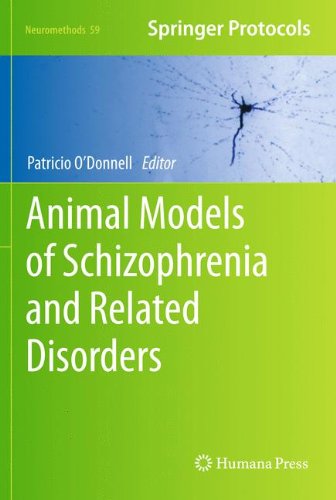

Most ebook files are in PDF format, so you can easily read them using various software such as Foxit Reader or directly on the Google Chrome browser.
Some ebook files are released by publishers in other formats such as .awz, .mobi, .epub, .fb2, etc. You may need to install specific software to read these formats on mobile/PC, such as Calibre.
Please read the tutorial at this link: https://ebookbell.com/faq
We offer FREE conversion to the popular formats you request; however, this may take some time. Therefore, right after payment, please email us, and we will try to provide the service as quickly as possible.
For some exceptional file formats or broken links (if any), please refrain from opening any disputes. Instead, email us first, and we will try to assist within a maximum of 6 hours.
EbookBell Team

4.1
40 reviewsAnimal models of schizophrenia and other major psychiatric disorders have been sought for decades, and, as a result, we are now facing new vistas on pathophysiology that could lead to novel therapeutic approaches and even hint at possible preventive strategies. Animal Models of Schizophrenia and Related Disorders presents an overview of the information that can be obtained with several different models and a detailed account of how to generate such models in order to ensure that the manipulations used to model schizophrenia-relevant phenomena are used consistently across laboratories. This detailed volume features pharmacological models such as non-competing NMDA antagonists, emphasizing their use in vitro, neurodevelopmental models such as the neonatal ventral hippocampal lesion and the antimitotic MAM, models that reproduce environmental factors such as neonatal hypoxia, vitamin D deficits, and prenatal immune activation, as well as several different genetic model approaches. As a volume in the Neuromethods series, this volume contains the kind of detailed description and implementation advice that is crucial for getting optimal results.
Practical and cutting-edge, Animal Models of Schizophrenia and Related Disorders highlights the successes in the use of animal models to gain insight on pathophysiological mechanisms of relevance to major psychiatric disorders in the hope of inspiring investigators to expand the research and test targets that could restore or ameliorate function.